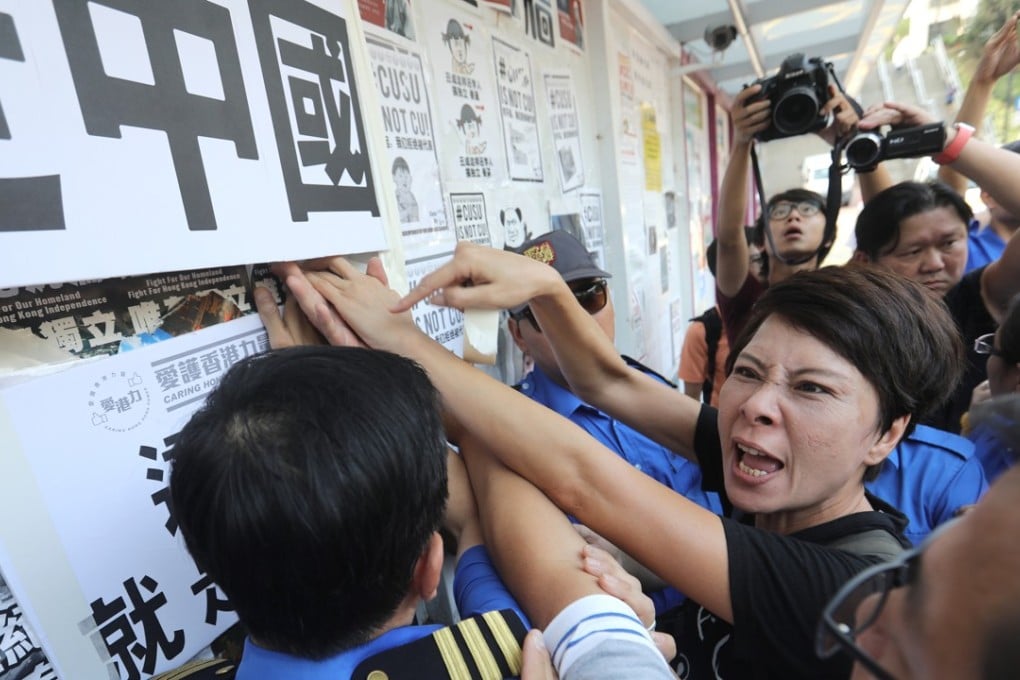Why the campus feud between Hong Kong and mainland Chinese students?
The pro-independence banner controversy has exposed the anger, distrust and lack of communications between both sides, say students and teachers

Her chin thrusting in defiance, she glared back at her detractors.
After being confronted for tearing down pro-independence posters, the bespectacled mainland Chinese student quickly went on the defence.
“I’m one of the students and they don’t have the right to do this,” said the girl, who was later vilified in Hong Kong and hailed a hero on the mainland after footage of the confrontation went viral.
“It’s not from the students,” she said of the offending materials, before storming off.
It took just two days into the academic year before sparks flew between mainland students and their Hong Kong counterparts at Chinese University of Hong Kong (CUHK).
The feud over pro-independence posters and banners being hung at universities in Hong Kong has exposed tensions between local and mainland Chinese students that have been simmering for years.